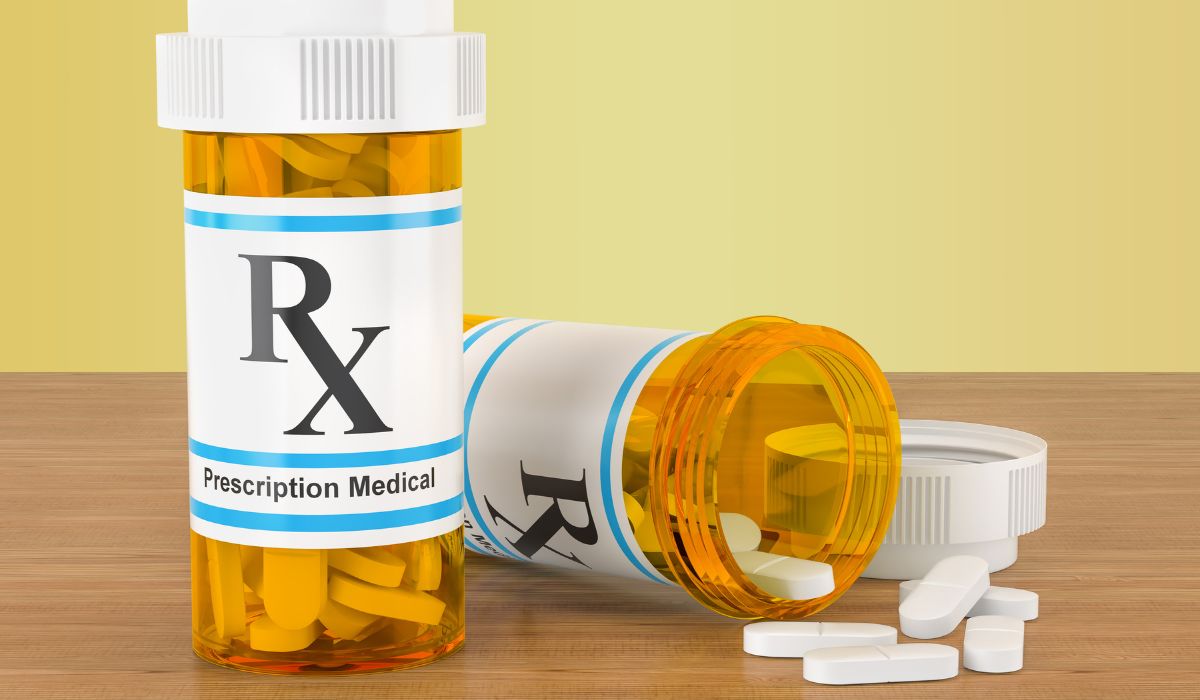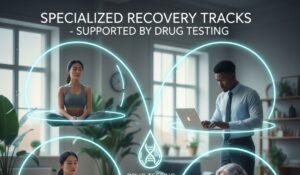Does Cyclobenzaprine Show Up on a Drug Test?
Cyclobenzaprine is a muscle relaxant often given for back pain, sprains, or muscle spasms. Many people ask: does cyclobenzaprine show up on a drug test? The answer depends on the type of test, the dose, and the person’s body.
At Lynk Diagnostics, a trusted drug testing center dedicated to rehab facilities, we provide accurate information about how drugs are detected in the body. This article will explain how cyclobenzaprine is tested, how long it stays in the system, and what factors—like metabolism, liver function, and genetics—can affect detection.
What Is Cyclobenzaprine?
Cyclobenzaprine is a prescription skeletal muscle relaxant. Doctors often use it for short-term therapy after an injury, sprain, or back pain. It works on the central nervous system to reduce spasm and pain.
Cyclobenzaprine is not an opioid, benzodiazepine, or controlled substance, but it does act as a depressant on the nervous system. The Food and Drug Administration (FDA) approved it as an antispasmodic medicine.
Other similar drugs include:
- Methocarbamol
- Tizanidine
- Baclofen
- Carisoprodol (which breaks down into meprobamate)
Why Do People Take Drug Tests?
A drug test may be required in many settings, such as:
- Rehab and substance abuse treatment centers
- Workplaces checking for adherence to safety rules
- Legal or court cases
- Medical monitoring by a health care provider
- Sports programs concerned with addiction or misuse
At Lynk Diagnostics, we use drug test cups and advanced lab testing to provide accurate data for rehab programs.
Does Cyclobenzaprine Show Up on Standard Drug Tests?
Most standard urine tests and workplace panels do not screen for cyclobenzaprine. Instead, they focus on:
- Amphetamine and methamphetamine
- Morphine and other opioids like oxycodone, methadone, fentanyl, and tramadol
- Diazepam and other benzodiazepines
- Adderall and methylphenidate
- Barbiturates
- Cannabis (THC)
Cyclobenzaprine may not appear unless specifically requested.
Can Cyclobenzaprine Cause a False Positive?
Yes. Cyclobenzaprine is chemically close to a tricyclic antidepressant. Because of this, some tests may confuse it with an antidepressant or give a false positive.
When this happens, advanced testing such as gas chromatography-mass spectrometry (GC-MS) or liquid chromatography-tandem mass spectrometry (LC-MS/MS) is used to check the result. Lynk Diagnostics uses these confirmatory methods to ensure accurate answers.
How Long Does Cyclobenzaprine Stay in the Body?
Detection depends on the type of test and the person’s body:
- Urine test: 3–4 days after last dose
- Blood test: 24–48 hours
- Saliva testing: 1–2 days
- Hair follicle tests: up to 90 days
The frequency of use, metabolism, liver enzyme function, and overall health all change how long it stays.
What Affects Cyclobenzaprine Detection?
Several factors can change how long cyclobenzaprine stays in your body:
- Genetics and natural drug metabolism
- Liver function and enzymes that break down drugs
- Mass and concentration of the dose taken
- Exercise, dehydration, and detoxification processes
- Food and drug interactions
- Blood pressure, mental health, and other health conditions
Side Effects and Risks of Misuse
Cyclobenzaprine can cause side effects, especially when misused:
- Drowsiness
- Constipation
- Xerostomia (dry mouth)
- Dizziness
- Trouble with concentration
- Anxiety or changes in mental health
When mixed with alcohol, opioids, or sedatives, cyclobenzaprine can become dangerous. In rehab, this is important to monitor for dual diagnosis patients who may have both substance abuse and mental health needs.
Cyclobenzaprine vs. Other Muscle Relaxants
Other antispasmodic drugs may also be tested, including:
- Methocarbamol
- Tizanidine
- Baclofen
- Carisoprodol (metabolized into meprobamate)
These drugs may appear on some tests, depending on lab requests and medical need.
Why Accurate Drug Testing Matters
For rehab patients, accurate testing supports:
- Safe therapy
- Better health care planning
- Tracking adherence
- Avoiding risky drug interactions
Lynk Diagnostics works with rehab centers to provide reliable information and testing.
FAQs
Does cyclobenzaprine show up on a drug test?
Not usually on a standard test. Special requests or advanced lab work are needed.
How long does cyclobenzaprine stay in urine?
It may appear in a urine test for 3–4 days after the last dose.
Can cyclobenzaprine cause false positives?
Yes. It may look like a tricyclic antidepressant on some drug tests.
What if I’m in rehab and prescribed cyclobenzaprine?
Tell your health care provider and the testing lab so they know your medications.
Where can I get accurate testing?
Lynk Diagnostics provides testing for rehab facilities with professional, confirmed results.
Disclaimer
This article provides information only. It does not replace advice from a health care provider. Always talk to your doctor or rehab team about medications, addiction, or drug testing.
Final Thoughts
So, does cyclobenzaprine show up on a drug test? The answer is that it usually does not appear on standard panels, but it can be detected through specialized testing like urine, blood, saliva testing, and hair follicle analysis.
Because factors like metabolism, liver health, and genetics affect detection, it is best to rely on advanced labs like Lynk Diagnostics, which supports rehab facilities with accurate, science-based results.








